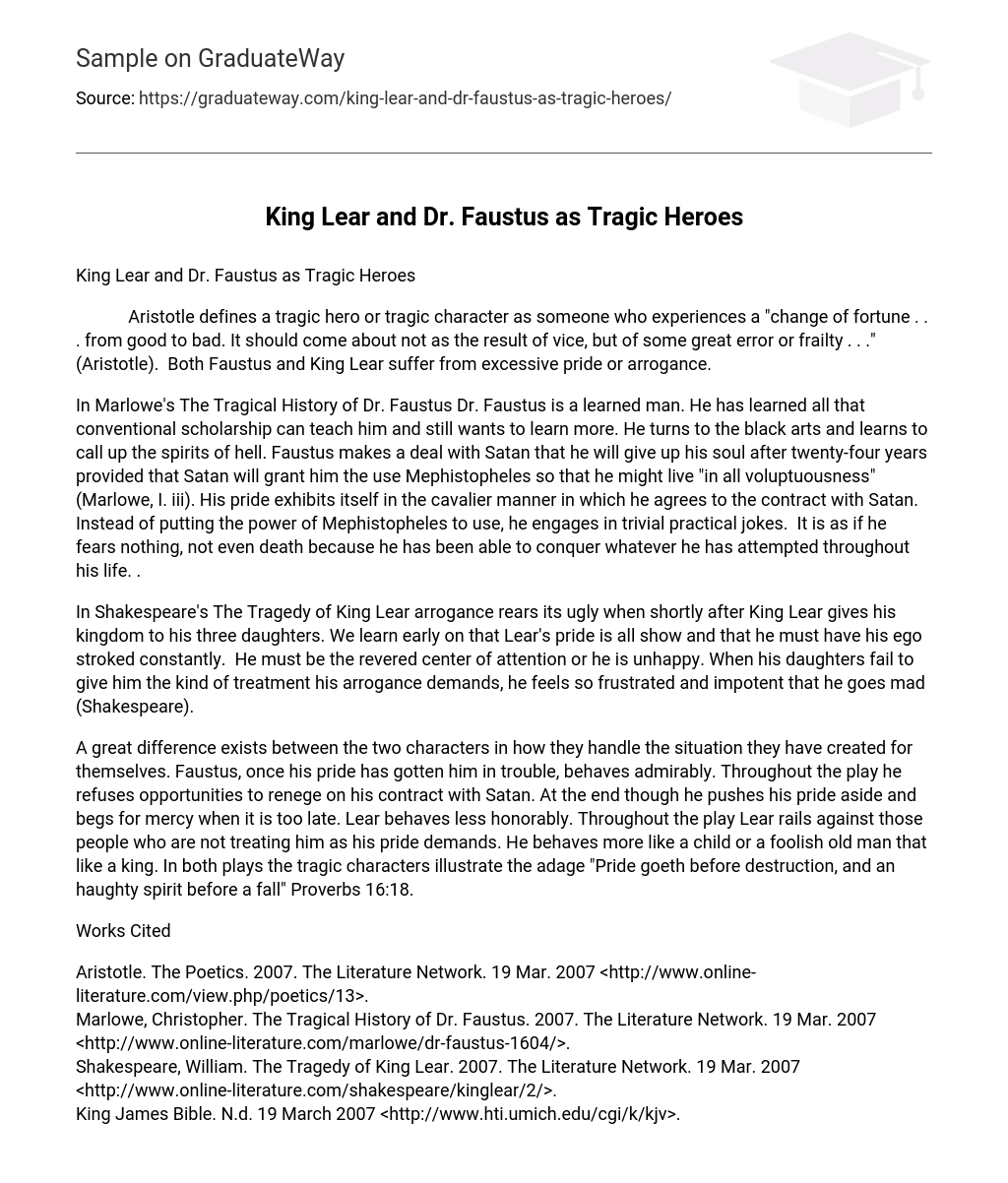Aristotle defines a tragic hero or tragic character as someone who experiences a “change of fortune . . . from good to bad. It should come about not as the result of vice, but of some great error or frailty . . .” (Aristotle). Both Faustus and King Lear suffer from excessive pride or arrogance.
In Marlowe’s The Tragical History of Dr. Faustus Dr. Faustus is a learned man. He has learned all that conventional scholarship can teach him and still wants to learn more. He turns to the black arts and learns to call up the spirits of hell. Faustus makes a deal with Satan that he will give up his soul after twenty-four years provided that Satan will grant him the use Mephistopheles so that he might live “in all voluptuousness” (Marlowe, I. iii). His pride exhibits itself in the cavalier manner in which he agrees to the contract with Satan. Instead of putting the power of Mephistopheles to use, he engages in trivial practical jokes. It is as if he fears nothing, not even death because he has been able to conquer whatever he has attempted throughout his life. .
In Shakespeare’s The Tragedy of King Lear arrogance rears its ugly when shortly after King Lear gives his kingdom to his three daughters. We learn early on that Lear’s pride is all show and that he must have his ego stroked constantly. He must be the revered center of attention or he is unhappy. When his daughters fail to give him the kind of treatment his arrogance demands, he feels so frustrated and impotent that he goes mad (Shakespeare).
A great difference exists between the two characters in how they handle the situation they have created for themselves. Faustus, once his pride has gotten him in trouble, behaves admirably. Throughout the play he refuses opportunities to renege on his contract with Satan. At the end though he pushes his pride aside and begs for mercy when it is too late. Lear behaves less honorably. Throughout the play Lear rails against those people who are not treating him as his pride demands. He behaves more like a child or a foolish old man that like a king. In both plays the tragic characters illustrate the adage “Pride goeth before destruction, and an haughty spirit before a fall” Proverbs 16:18.
Works Cited
Aristotle. The Poetics. 2007. The Literature Network. 19 Mar. 2007 ;http://www.online-literature.com/view.php/poetics/13;.
Marlowe, Christopher. The Tragical History of Dr. Faustus. 2007. The Literature Network. 19 Mar. 2007 ;http://www.online-literature.com/marlowe/dr-faustus-1604/;.
Shakespeare, William. The Tragedy of King Lear. 2007. The Literature Network. 19 Mar. 2007 ;http://www.online-literature.com/shakespeare/kinglear/2/;.
King James Bible. N.d. 19 March 2007 ;http://www.hti.umich.edu/cgi/k/kjv;.





